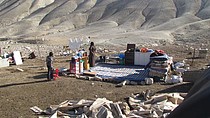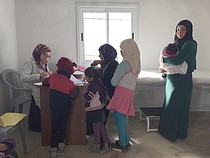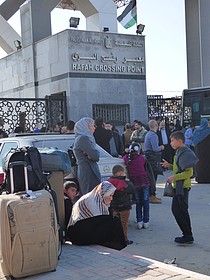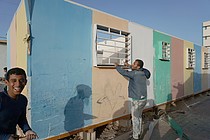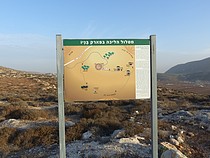The Monthly Humanitarian Bulletin | January 2017
Nearly 1,100 structures demolished or seized by Israeli authorities in 2016 in the West Bank, the highest on record since 2009, and double those of 2015. Over 12,500 final demolition orders outstanding against Palestinian-owned structures across Area C. The OPT Humanitarian Fund allocated $3 million to support 181,000 Palestinians at risk of displacement and/or facing safety hazards due to the winter weather conditions. The expansion of Elon Moreh settlement over privately-owned Palestinian land has severely undermined the livelihoods of three villages in the Nablus area.
Last year ended with a record number of demolitions and seizures of Palestinian property (nearly 1,100 structures targeted) by the Israeli authorities across the West Bank, mostly on the grounds of lack of building permits, which are almost impossible to obtain. The practice accelerated in the first month of 2017 with 140 structures destroyed or seized, more than 50 per cent higher than the monthly average in 2016.
During January 2017, OCHA recorded the demolition of 140 structures by the Israeli authorities, displacing around 240 Palestinians and affecting another 4,000. The number of structures demolished during the first month of the year was over 50 per cent higher than the monthly average of structures targeted in 2016 (91). All of these demolitions were carried out in Area C and East Jerusalem on the grounds of lack of building permits, although these are nearly impossible to obtain for Palestinians.
As part of the “policy of separation” between the Gaza Strip and the West Bank, the Israeli authorities prohibit the passage of Palestinians in and out of Gaza. Exceptions are made for certain categories - principally businesspeople, medical patients and their companions, employees of international organizations and specific humanitarian cases - who are eligible for exit permits, subject to security checks. The situation has been compounded by the restrictions imposed by the Egyptian authorities on the Rafah Crossing since October 2014 and the inability of the Government of National Consensus to assume control over of the Palestinian side of the crossings, due to the ongoing internal divide.
Eight winter-related projects of the 2016 Humanitarian Response Plan are underway following the allocation of around $3 million by the OPT Humanitarian Fund (HF) in late November 2016. More than two thirds of the projects are run by national NGOs either directly or in partnership with UN agencies/ international NGOs. The projects target more than 181,000 Palestinians who are at risk of displacement and/or face safety hazards due to winter weather conditions, particularly flooding and storms. Six projects are in the Gaza Strip and two in the West Bank.
A research to improve humanitarian response and preparedness: The following case study of Elon Moreh settlement in the Nablus governorate is the third in a series of Humanitarian Bulletin articles on the findings of this research.
